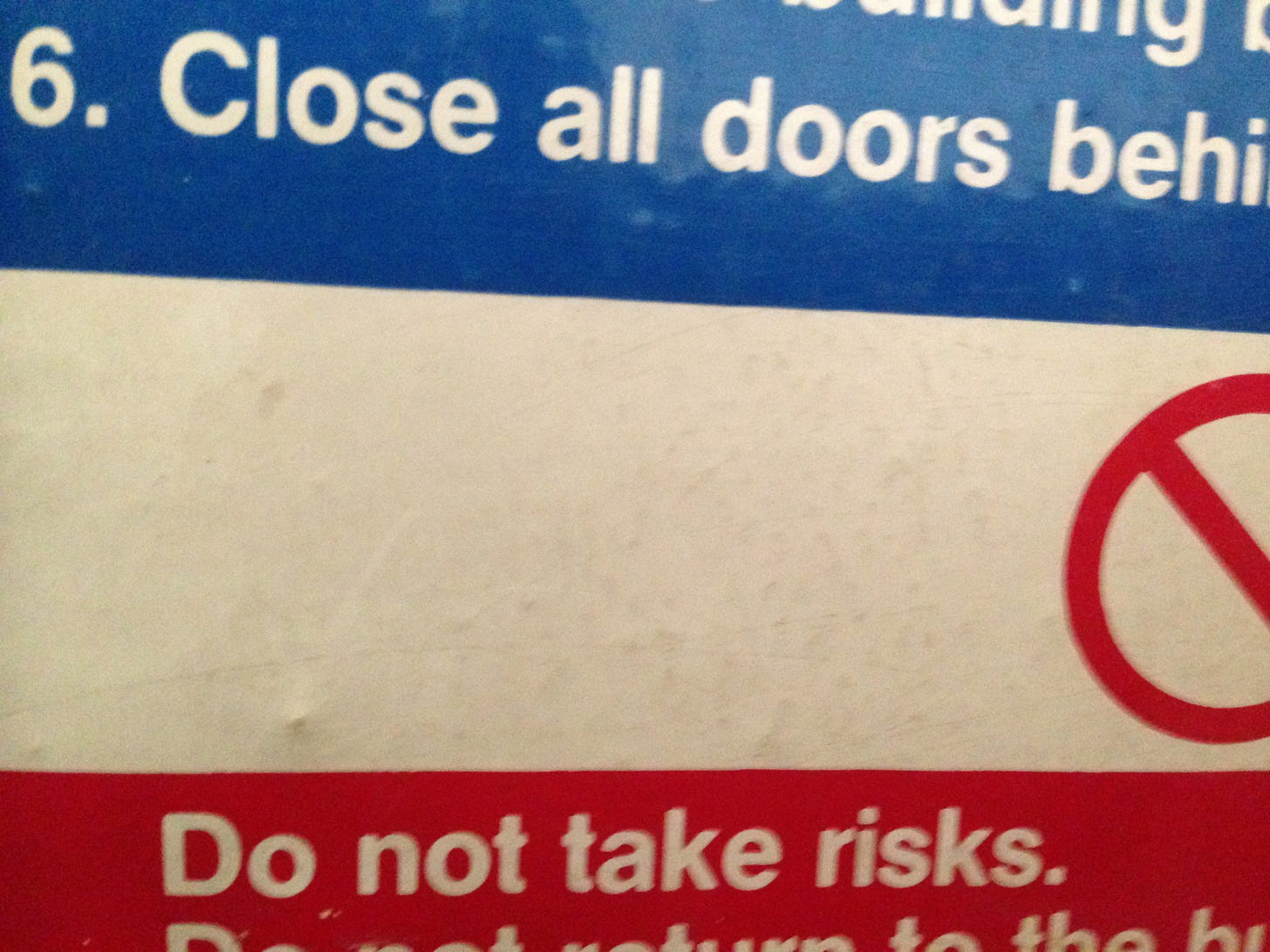Mr. Midnight Meatball Sub
A brush with death in Oxford (MYSTERY POST #4)
Here’s my naive American understanding of doors: they open and close. More advanced doors open only for certain people—say, those possessing the appropriate keys—and not for others.
In Oxford (UK), I discovered, doors don’t work this way.
It was my first year there, and I was living in crummy college housing: a bed, a desk, a closet-sized bathroom. My college had, at exorbitant cost, provided me with a “bedding pack” upon my arrival, which included a duvet and a duvet cover. But I didn’t know what these mysterious textiles were, so I was using the duvet cover as a very ill-fitting fitted sheet, and I slept every night under the naked duvet, which was a flimsy rectangle of cheap synthetic cotton, the kind you might get from a hospital, or from rescuers during a natural disaster. (“British bedding sure is different!” I remember myself thinking.) I share this only to impress upon you that, although some unfortunate things are about to happen me in this story, I probably deserved them.
It was nighttime, and I was just wrapping up a Skype call with a friend of mine back in the States. Neither Zoom nor covid-19 had been invented yet, so video chat still felt formal and special, like how people used to wear suits when they flew on a plane.
Suddenly, the power went out. I tried to call my friend back, but I didn’t have cell service. Every building in the UK is constructed out of six solid inches of stone, which block all forms of electromagnetic radiation.
(You can still see a rudimentary form of this kind of building at Stonehenge. When it was still in use, of course, all of the giant stones were pushed together, and a sad American lived in the center, raising his phone to the sky, trying to get a text to go through.)
I stepped outside, texted my friend that our Skype would have to be resumed another time, and turned to reenter the building. That’s when I discovered this night was going to be a bad night.
The doors to my building were unlocked via key fob, a system which, of course, requires electricity. You might think that Oxford would have planned for momentary lapses in the electrical supply, perhaps with a generator or a battery backup. This was the country that survived the Blitz, after all. But no: the little receiver that unlocked the door was completely dead.
I milled around for a few minutes, hoping for some sign that the electricity was about to return, like a technician calling from across the street, “‘Ello guvna, just about to pop the electricity back on!” But it was winter, so it was about 45 ℉ (-23 ℃), and wet, and I was wearing a sweater and jeans.
Fortunately, I had my phone with me. Unfortunately, the battery was at 1%. I started typing a group message to everyone I knew in Oxford: “Hey, could anyone take me in for the night? I think I got locked out because the power is out so the door to my flat won’t open.” But I took a few minutes to workshop it, because I had only met these people a month ago, and I didn’t want to seem weird or desperate. Should I add a little smiling emoji to appear friendly? Maybe start with a “hey hope everybody’s having a great night”? Sign off with a little, “No worries if not!”?
By the time I sent the text, my phone immediately died, rendering me utterly homeless and helpless.


